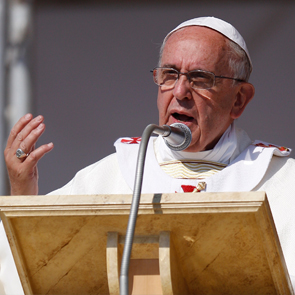A leading Catholic expert on health has claimed that a trend to professionalise hospital chaplaincy could endanger the future of the service.
Jim McManus, who advises the Bishops of England and Wales on health and social care, complained that the NHS is losing recognition of chaplains’ spiritual role and their connection to faith communities.
Mr McManus told a multi-faith chaplaincy seminar in Birmingham that registers set up to protect the public - following the case of the Manchester GP Harold Shipman who murdered around 250 of his patients – had contributed to the trend towards professionalising chaplaincy.
At a time of major public sector cuts Mr McManus feared chaplaincy provision was vulnerable if it was considered alongside psychology and other talking therapies.
“If all chaplaincy is, is becoming unqualified psychologists without degrees in psychology, then we are wasting our time because NHS Trusts will wake up sooner or later and realise that assistant psychologists are cheaper … arguably more safe and effective than chaplains at talking therapies if the big trend of safeguarding and protecting the public is the crucial one,” he said at the Nishkam Centre on 28 May.
Mr McManus who is director of public health for Hertfordshire County Council, was critical of secularism and the pressure to move faith out of the public sphere. The arguments presented by the new atheists were, he said, a diversion from discussions about the enduring social value of faith-based action and witness, and the fundamental right of people of faith to have that faith respected.
Complaining of religious illiteracy among health professionals, Mr McManus related his own recent experience when he spent four months in hospital being treated for cancer.
“I had to do more education of nurses around religious literacy than they had to do with me around my chemotherapy,” he said.
Of the guidelines on NHS chaplaincy currently under review, Mr McManus said he could see no deep analysis of the contribution of faith and he called on people of faith to make common cause on the issue.
“I don’t think the current policy world and its model of working with religion and diversity understands it. Faith is still something that government is uneasy about. We really need to change that,” he said.


 Loading ...
Loading ...